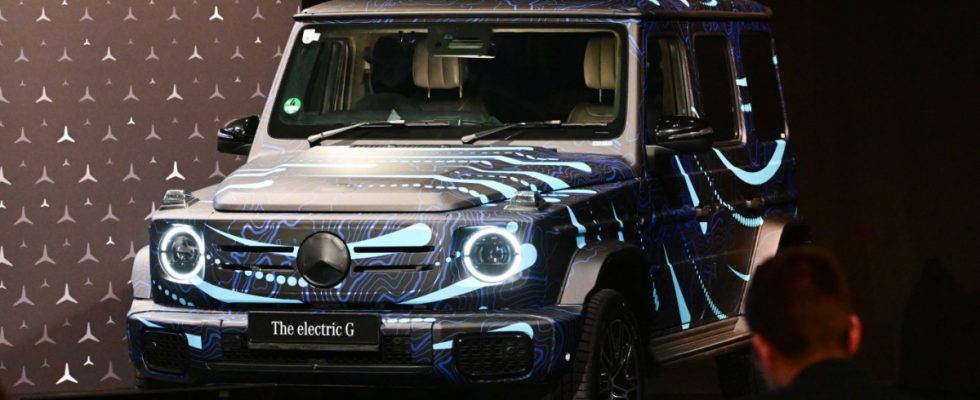No matter how hard Mercedes boss Ola Källenius tries to deny a change in strategy, the figures that the Stuttgart car manufacturer presented as an outlook in its annual balance sheet on Thursday speak a different language. And that is: We were too optimistic about sales of electric cars. Customers continue to primarily want combustion engines – and Mercedes promises: We will deliver as long as the demand is there. According to Källenius, this could last until the 1930s.
The official announcements about the end of the combustion engine at Mercedes have always contained a small aside, but this is now given much greater emphasis. “Where market conditions allow it,” it was always said, they wanted to sell only electric cars by 2030. The promise: By the end of the decade, Mercedes will offer such good electric cars in all segments that customers will no longer have any reason to buy another diesel or gasoline model. Apparently people in Stuttgart are no longer convinced that this strategy will work.
When presenting the balance sheet, the new forecasts are suddenly much more defensive: the electric share of new registrations in the second half of the decade is expected to be “up to 50 percent”, and this also includes hybrid cars. The people of Stuttgart do not want to name an electric quota for 2030. This means that Mercedes is setting its goals lower than its competitor BMW, which wants to sell at least half of all vehicles fully electric by 2030. For the current year, Mercedes expects an electric share of around 20 percent.
It’s a difficult balancing act that the Stuttgart team is currently facing
“We need tactical flexibility,” says Källenius, explaining the plan for the coming years. Combustion engine models will continue to receive updates. It is also significant that the first model that the Mercedes boss raved about during his presentation was the new non-electric E-Class.
It’s a difficult balancing act that the Stuttgart team is currently having to manage. “It’s no secret that the margins are lower for electric cars than for combustion engines,” says Mercedes CFO Harald Wilhelm. It will stay that way for a while. In this respect, it is currently helping the car manufacturer’s balance sheet if, contrary to expectations, combustion engines are now in demand.
But at the same time, Mercedes continues to invest billions of euros in the conversion to e-mobility. The goal remains, emphasizes CEO Källenius: the company wants to be completely CO₂-neutral by 2039. Only the pace there has apparently slowed down. This is also because e-mobility is driven more by growth in segments that are cheaper than the luxury cars from Mercedes.
That’s set to change in the next two years, when the electric CLA comes onto the market as a new entry-level car and then electric versions of the C-Class and GLC. But the cautious forecasts for the share of electric cars by 2030 also indicate that, despite the new models with ranges of more than 700 kilometers, they assume that the majority of customers will still choose a combustion engine.
The numbers for 2023 show a slight weakness. Although group sales rose slightly to 153.2 billion euros, profits fell by four percent to 19.7 billion euros. And the outlook for 2024 is also cautious: earnings are expected to fall slightly this year. In the main passenger car division, the profit margin fell by two percentage points to 12.6 percent in 2023. This year it could go even further down, as Mercedes is currently reporting a range of ten to twelve percent. The smaller van division at least boosted the group result a little. Profits there rose by almost two thirds to around three billion euros, and the margin rose from eleven to 15.5 percent.
And even if business was a little weaker, there is good news for 91,000 employees in Germany: the company is paying them a record bonus of 7,300 euros.

